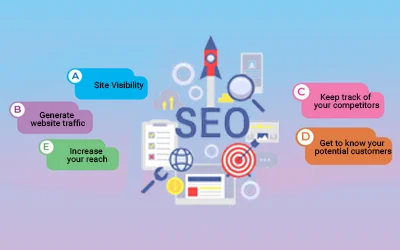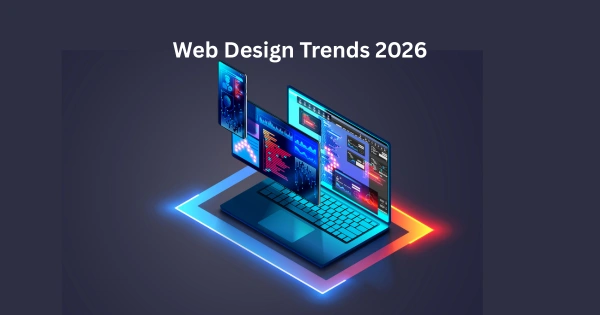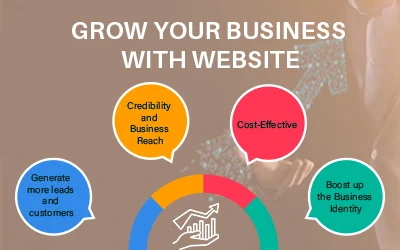With time, technology has evolved in every sector, including teaching and learning. Today, businesses and educational institutions integrate LMS software to streamline learning processes, optimize employee training, & enhance development programs.
However, sourcing an LMS is not easy—it comes with two options: custom LMS and off-the-shelf LMS. And choosing the best one depends on your specific needs, budget, & purpose.
In this blog, we will discover the comparison between custom LMS vs off-the-shelf LMS, their pros and cons, and key considerations to make the right choice. Let’s dive into details!
What is LMS?
LMS full form is Learning Management System. It is a software application designed for organizations, businesses, and institutions to manage employee training, simplify onboarding, and deliver course materials efficiently.
Many types of LMS are available in the market, but two are the prime ones. These are custom LMS and off the shelf LMS. Both options have a set of uniqueness, advantages, and drawbacks. And this sort of info brings a question before you: “Which LMS is better: custom or off-the-shelf?”
To get the answer to this complex question, a detailed understanding of the comparison between custom LMS vs off-the-shelf LMS is a must.
What is a Custom LMS?
A custom LMS is a fully tailored solution, designed to meet the organization’s specific learning & training needs. Instead of pre-built design templates, businesses with a large workforce choose this option to scale their learning system for distinct training goals.
Custom LMS is designed from scratch to align perfectly with brand preferences, such as workflows, content, user roles, etc.
With custom-made solutions, development takes more time, and long term investment in Custom LMS is cheaper, helping you streamline your organization's operations to achieve visionary milestones.
What is an Off-the-Shelf LMS?
Also known as a ready-made LMS, off the shelf LMS is a package solution designed to fulfill the general learning & training needs of a wide range of industries. Whether you are a startup, SME, or organization, this LMS system comes with pre-built features to help you run the platform quickly.
Off the shelf LMS can be used in a broad environment of the organization, but the customization is limited.
Functioning on a subscription-based or cloud-based model, this option offers smart and fast solutions to streamline the training process with minimal upfront investment.
Key Differences Between Custom and Off-the-Shelf LMS
If you are also confused about how to decide between custom LMS and off the shelf LMS for your organization, check out our comparison guide. From cost, time to deploy, scalability, integration, to maintenance and support, we have mentioned all the key aspects of Off-the-Shelf vs Custom LMS to highlight the differences.
| Criteria | Custom LMS | Off the Shelf LMS |
|---|---|---|
| Customization | Can be tailored fully to meet the specific needs of an organization. | Comes with ready-made features for general learning programs for broad usage. |
| Relevance | Perfectly align with brand preferences, such as designs, culture, and operations. | Adaptable but may not cater to unique and niche demand. |
| Target Audience | Specific audience with targeted learning goals. | Wide range of audience. |
| Flexibility | Highly flexible and can easily adapt to evolving learning demands. | Limited flexibility with basic configuration settings. |
| Scalability | Fully scalable to accommodate growth based on rising numbers of learners and requirements of technology advancement. | Scalability is limited. Additional purchases may be required to scale the processes. |
| Integration | Make changes in the existing LMS with seamless integration and optimize organizational workflows. | Might require extra setup to integrate with the organization’s existing systems. |
| Development Time | Development takes a longer time due to customization based on the specific brand objective. | Faster deployment with ready-made content may require minimal adjustments. |
| Cost | Initial investment is much higher due to tailored designs and feature integration. In the long term, it becomes cheaper. | Upfront investment is very low due to pre-built designs, but in the long term, the cost becomes higher. |
| Ownership | The organization owns it and gets full access for unlimited modifications. | Joint ownership with the provider, allowing limited modification. |
| Maintenance & Support | Needs a dedicated in-house support team for updates, troubleshooting, and system maintenance. | Comes with vendor support that takes care of software updates, security, maintenance, bug fixing, and other technical issues. |
Pros and Cons of Custom LMS
Custom LMS comprises a set of pros and cons, which we have described below:
Pros:
- Tailored to specific needs: Designed specifically to match your brand objective & preferences.
- Scalable & adaptable: Easy to integrate new features or expand as your business operation for growth.
- Better control: Full ownership of data, security, and system customization.
Cons:
- High initial cost: A Significant investment is needed for development and setup.
- Longer time to develop: Custom systems can take months in the development process.
- Ongoing maintenance: Needs internal team support for updates, bug fixes, and technical issues.
Pros and Cons of Off-the-Shelf LMS
Off the shelf LMS contains a set of pros and cons, which we have explained below:
Pros:
- Quick deployment: Ready-to-use with minimal setup time.
- Lower initial cost: Budget-friendly, often available as a subscription.
- Vendor support included: Maintenance, updates, and technical support are usually handled by the provider.
Cons:
- Limited customization:May not fully align with your unique business processes.
- Scalability constraints: Adding new features or integrations can be difficult.
- May require additional configurations: Could need extra setup to work with existing systems and tools.
How to Choose: Key Considerations
When it comes to choosing best option between custom LMS vs off the shelf LMS, a few aspects need to be kept in mind. Considering these key factors helps you make right choice for your organization's training needs.
Budget
When choosing between Off-the-Shelf vs Custom LMS, the first assessment is your budget. A ready-made LMS is a low-cost option for the initial investment, but in the long term, it becomes expensive––best for quick and short-term solutions. On the other hand, a custom LMS is costly in the beginning, but becomes cheaper with time—best for long-term and flexible solutions.
Timeline
The timeline is one of the crucial elements to look for while investing. If you want to implement your system quickly, then off the shelf LMS is a great choice, while a custom LMS takes a longer time but provides tailored solutions.
Specific Requirements
Identify your learning needs. If you need custom features and integration for workflow development and performance analytics, then go for a custom LMS.
Team Capacity
Check your team capacity. If you are an organization with a large workforce and need an in-house team for ongoing support, then choose a custom LMS. Off the shelf LMS offers vendor support, which is the best option for startups and small-sized businesses, and organizations.
Scalability
A custom LMS offers more flexibility to scale when the business grows, while off the shelf LMS has limited scalability, requiring more purchases to become flexible.
Final Verdicts: Which One is Best for Your Business?
Choosing the right LMS for your business between custom LMS vs off the shelf LMS needs addressing the budget, specification, timeline, & scalability. Because no one size fits all, your organization's needs may be different, which requires specific solutions. This is why you must think of your goal, team size, and future plans while investing in LMS.
If you want to implement an LMS solution into your system and need assistance, don’t worry. We are a leading custom LMS development company that understands your needs and challenges and recommends the best option for your organization. We hold your hands and guide you at every step of your journey, making things easy and helping you meet your desired goals smoothly.











